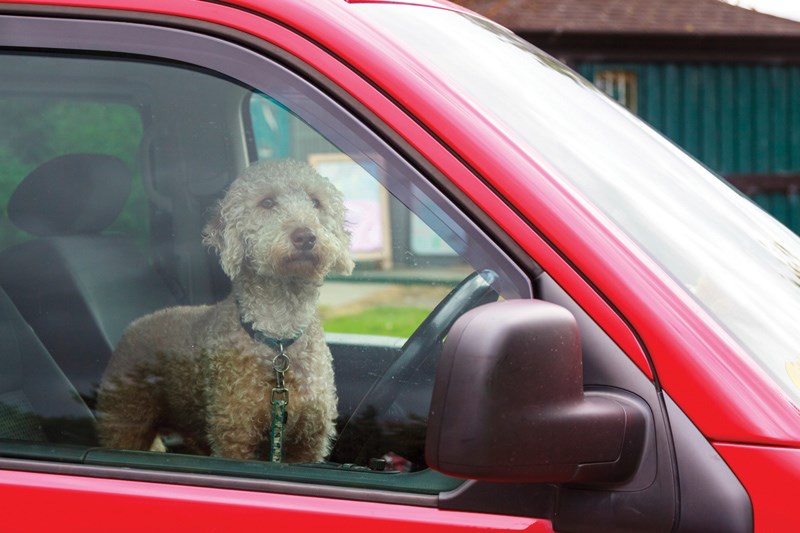Each summer the RCMP and other agencies receive an excessive number of emergency calls to rescue dogs whose lives are endangered because they are left in hot cars. Many well-meaning guardians leave their pets in parked vehicles while they run errands, thinking they will be safe for a short period. Tragically, in hot weather their pets can suffer serious heatstroke and die in a matter of minutes.
The temperature in a parked car, even in the shade with windows partly open, can rapidly reach a level that will seriously harm or even kill a pet. In just minutes, the temperature in a parked car can climb to well over 38 degrees Celsius (100 degrees Fahrenheit). Dogs have no sweat glands, so they cool themselves by panting and by releasing heat through their paws.
On summer days the hot air and upholstery in a vehicle can make it impossible for pets to cool themselves. Dogs can withstand high temperatures for only a very short time – usually just 15 to 20 minutes – before suffering irreparable internal organ and brain damage or death.
If you see an animal in distress in a parked car, note the licence plate and vehicle information and ask managers of nearby businesses to page the owner to return to their car immediately. Report to police if no owner is found or when the animal is suffering symptoms of heatstroke. During the daytime call your local SPCA and in emergency call 911 for RCMP attendance.
It is illegal for members of the public to break a window to access the vehicle themselves; only RCMP and special provincial constables of the BC SPCA can lawfully enter a vehicle. SPCA branch staff and volunteers cannot enter vehicles.
Symptoms of heatstroke include exaggerated panting (or the sudden stopping of panting), salivation, vomiting, anxious or staring expression, lack of coordination, convulsions, collapse.
If your pet shows symptoms of heatstroke: immediately move to cool shady place and provide water; wet the dog with cool water; fan vigorously to promote evaporation (this will cool the blood, reducing their core temperature); take to veterinarian as soon as possible for further treatment.
– Sunshine Coast RCMP



